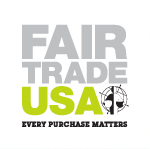The “Fair Trade Certified” label is administered in this country by Fair Trade USA, whose slogan is “Every Purchase Matters.” The group is a constituent of the worldwide Fair Trade movement, which pursues the goals of sustainability and economic viability in disadvantaged areas all over the world. Products bearing the logo, according to the Fair Trade USA Web site, are coming from farmers and workers who are compensated well, and have a background of sustainability with regard to the natural environment and local communities.
The study lasted six months and took place in 26 stores. The key finding was that the two most popular bulk coffee brands saw sales increases of up to 13% when the Fair Trade logo was prominently applied. Another finding was that purchases of a higher priced coffee brand stayed steady when an 8% price hike was applied along with the Fair Trade logo. When a similar action was taken with a low-priced coffee brand, however, sales took a small dive, indicating that consumers on a tight budget may not be willing to pay more for Fair Trade.
The consumers that provided the sales figures for this study were shopping in mainstream retail locations. They were not, by and large, limited to the health focused and eco-conscious consumers that one might expect to pay more for Fair Trade. Studies like this help the fair trade movement expand its reach. “Sharing evidence that consumers are willing to vote for Fair Trade with every purchase helps make it easy for a company to get on board with our vision for the world,” says Sri Artham, director of strategic accounts for Fair Trade USA.
This positive momentum is the result of the consumer awareness efforts that have already been undertaken by the Fair Trade movement. While these sales figures are a promising sign of the times, the movement believes there is still more work to be done. “We’re really fortunate to work with so many organizations that believe in what we do and want to share that story with the world. Most people in the United States still do not understand what Fair Trade is, but by helping our partners tell the Fair Trade story with a similar voice, we're confident that will change in the coming years,” Artham says. Almost everyone, it seems, is beginning to feel they have a stake in the global economy and planet earth.
Published in WholeFoods Magazine, July 2011










